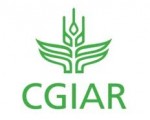CGIAR Scientists and policymakers are reflecting on the role of agroforestry, food and nutrition in achieving the Sustainable Development Goals (SDGs), following the adoption of the 2030 Agenda for Sustainable Development.
Reactions highlight the importance of addressing the social dimensions of agroforestry and maintaining a focus on goals related to poverty and hunger.
 October 2015: CGIAR Scientists and policymakers are reflecting on the role of agroforestry, food and nutrition in achieving the Sustainable Development Goals (SDGs), following the adoption of the 2030 Agenda for Sustainable Development. Reactions highlight the importance of addressing the social dimensions of agroforestry and maintaining a focus on goals related to poverty and hunger.
October 2015: CGIAR Scientists and policymakers are reflecting on the role of agroforestry, food and nutrition in achieving the Sustainable Development Goals (SDGs), following the adoption of the 2030 Agenda for Sustainable Development. Reactions highlight the importance of addressing the social dimensions of agroforestry and maintaining a focus on goals related to poverty and hunger.
Scientists will need to move beyond the pure science of agroforestry to address institutional and social aspects, reflects Margaret Kroma of the CGIAR Consortium’s World Agroforestry Centre (ICRAF), in a blog. ICRAF scientists have produced cutting edge research on sustainable farming, which is relevant to SDG 1 on poverty reduction, SDG 2 on food security and nutrition and SDG 15 on sustainable land use. Kroma observes, however, that this research has not translated into wide-scale change for small-scale and rural farmers. She highlights the recent adoption of the SDGs as a challenge to ICRAF scientists “to bring the socio-ecological and equity dimension” into their work.
Keeping the focus on goals to eliminate extreme poverty, hunger and malnutrition and conserve the environment are critical to unifying efforts towards achieving multiple SDGs, International Food Policy Research Institute (IFPRI) Director General Shenggen Fan writes. In a blog post, he highlights messages from an IFPRI policy seminar on the SDGs that emphasize: translating global commitments to country implementation, including through multisectoral approaches; evidence-based policies that support SDGs monitoring and evaluation to assist in prioritizing actions and resources and ensuring accountability; promoting inclusive growth from the bottom up; elevating local communities through capacity strengthening and creating an enabling environment for private sector involvement; and communicating to all audiences. Shenggen also highlights best practices on reducing hunger and malnutrition and describes how IFPRI will support country-led efforts to achieve the SDGs.
IFPRI is also part of the CGIAR Consortium. [ICRAF Blog] [IFPRI Blog]